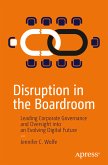Managing innovative workspace concepts as an organizational change initiative has gained attention among practitioners and researchers. Despite the tremendous potential workspace concepts might bring to organizations, managing workspace changes is a complex undertaking that requires the consideration of various factors. Many workspace change projects fail and encounter resistance from those affected, often because such projects are not sufficiently based on organizational development and change management knowledge and principles. This book addresses this issue by exploring the process of managing workspace changes along four explorative studies. Building upon a systematic literature review and a longitudinal, in-depth case study inside the insurance industry, the conceptual basis, key principles, change activities and sensemaking patterns are identified. These findings are summarized and integrated into a holistic and scientifically developed process model that shows how workspace changes can be dynamically managed to facilitate organizational change. In doing so, theoretical contributions are derived and valuable recommendations for practitioners in facility management, human resources and change management provided.
About the Author
Natalie Breutner is a postdoctoral researcher at the Chair of Information Systems, Innovation & Value Creation at the Friedrich-Alexander-Universität Erlangen-Nürnberg (FAU). She worked in consultancy where she gained experiences in various digital transformation projects. Her research focuses on organizational development and change management in the context of future of work.
About the Author
Natalie Breutner is a postdoctoral researcher at the Chair of Information Systems, Innovation & Value Creation at the Friedrich-Alexander-Universität Erlangen-Nürnberg (FAU). She worked in consultancy where she gained experiences in various digital transformation projects. Her research focuses on organizational development and change management in the context of future of work.
Dieser Download kann aus rechtlichen Gründen nur mit Rechnungsadresse in A, B, BG, CY, CZ, D, DK, EW, E, FIN, F, GR, HR, H, IRL, I, LT, L, LR, M, NL, PL, P, R, S, SLO, SK ausgeliefert werden.









